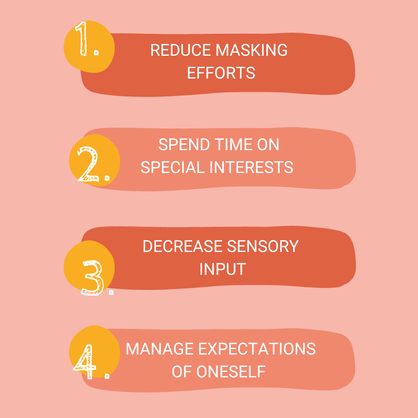|
Let’s talk about burnout 📣
Autistic burnout is a phenomenon that is currently under-researched and poorly understood. For me, it is a slippery slope that often leads to a depressive episode and a decreased ability to look after myself, manage my own emotions, and tolerate my sensory environment. For many, burnout involves the loss of necessary skills and makes looking after oneself extremely difficult. Before recognising my own neurodivergence, I had repeated episodes of burnout characterised by spending days in bed, often in total darkness. At the time, I was completely unaware of the ways my own expectations of myself and my sensory environment were affecting my wellbeing, often blaming myself for my inability to “just get on with it.” Understanding the effects of burnout and how to prevent it has been an important step in my own journey towards better understanding myself and meeting my own needs. So, how can one prevent burnout altogether or manage burnout once it’s begun? While I’d be lying if I said I’d solved this issue for myself (I am still very much working out how to structure my life in a way that prevents burnout) here are some things that have helped me:
So, what steps do you take to prevent burnout? What would you add to this list? Comment below or email me at [email protected]! Comments are closed.
|
About the
|


